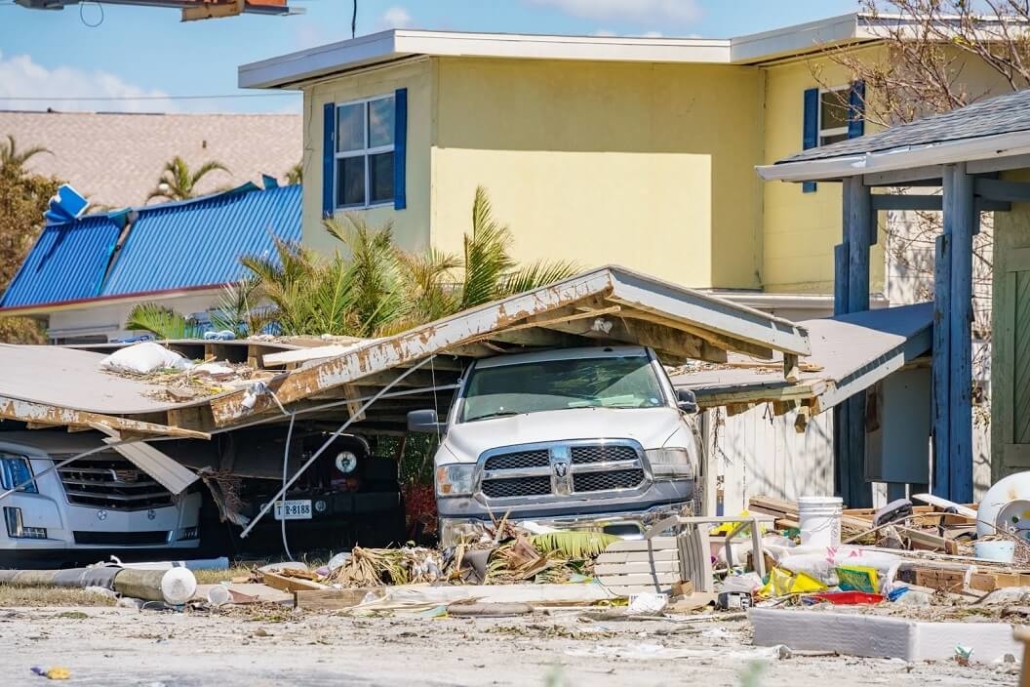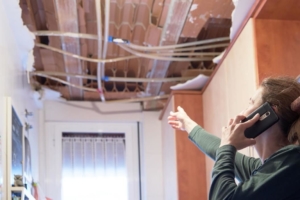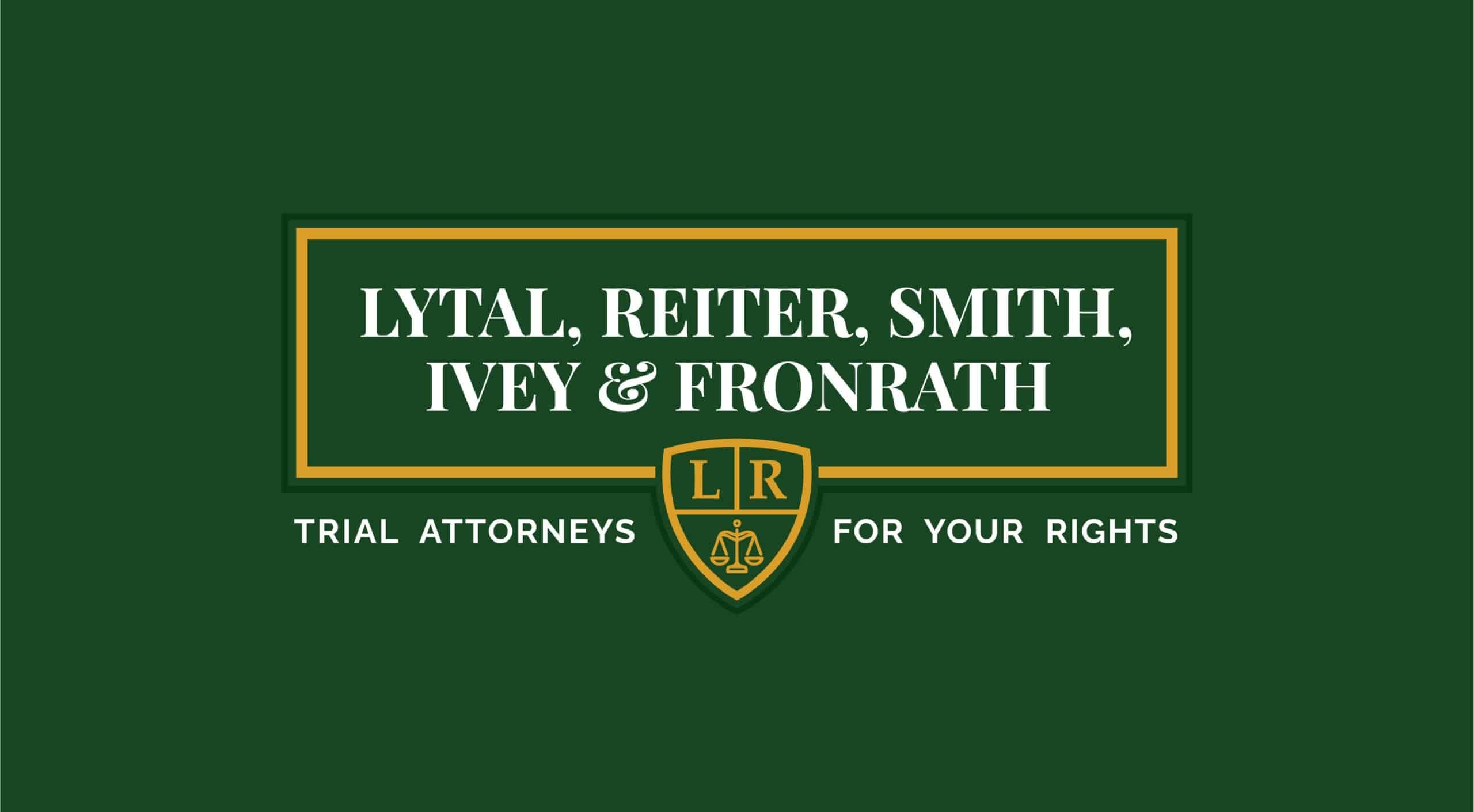Hurricane Ian was devastating–your home may have sustained severe structural damage in addition to floodwaters ripping through your home, destroying everything that’s inside. Dealing with insurance claims while processing your emotions stemming from these losses can be frustrating, to say the least. What can you do to get back to normal as quickly as possible?

The first thing to do is to try and stay as calm as possible–the process can take a long time and it might seem complicated. The Florida personal injury lawyers with Lytal, Reiter, Smith, Ivey & Fronrath will help you with your claim if you feel that they’re treating you unfairly. Contact us online or schedule a free consultation by calling (561) 655-1990.
In the meantime, here are a few tips to consider when filing a property damage claim to increase the chances of an efficient and hopefully quick process.
Look over your policy closely
The best time to know what your insurance covers is before a storm strikes, but even though you’re past that point, it’s still important to understand what’s covered and what’s not by thoroughly reviewing your declarations page. If you don’t have a paper copy, you can usually access it online, or you can call your insurer and ask them to send you a copy.
Notify your insurance company ASAP
Some homeowners whose homes were damaged by Ian have waited to file their insurance claim, thinking that because there are so many people doing the same thing that there’s no point in being in any sort of rush and it might even be faster if you wait.
While that might be an understandable way of thinking, it’s also a mistake. You need to file your claim as soon as possible because you’re less likely to encounter complications if you file as close to the date of damage as possible. This is an incredibly hectic time for insurers and adjusters who are trying to get to as many homeowners as they can, as fast as they can.
Nonetheless, you still need to talk to your insurance company right away to get the claims process started. The longer you wait, the higher your chances are of being lost in the shuffle or having your claim denied.
Take detailed notes when talking to an insurance company representative
Whenever you speak with your insurance company or an adjuster, have a pen and a piece of paper ready (or be in front of your computer) to take detailed notes. These notes can help if you have any sort of dispute with the insurer further into your claim, they might also tell you important information and local resources that may be available to you.
Start gathering proof
Take as many photos and videos as you can

The more pictures and videos you can get of the damage, the better. Take a picture of all portions of your home – the doors, the windows, appliances, personal items, vehicles, and everything else. When taking videos of your personal property, try to describe the important items including information such as when you purchased it, the material, how much you purchased it for, and its condition before the incident.
If it’s safe to do so, take photos of your roof – but only do so as safely as possible. It’s always very helpful if you have photos or videos of your property and belongings from before the damage.
Keep a detailed inventory list
Either while taking photos and videos or after, write down every item in your home and part of your home that was damaged because it will provide further evidence of your losses in a simpler format to review compared to hundreds of photos and videos.
You can do this by hand, electronically on a spreadsheet, or the National Association of Insurance Commissioner (NAIC) has a home inventory app available on Google Play and the Apple App Store.
Gather all of your receipts
If your home is uninhabitable, you’re obviously going to need alternative living arrangements for a few weeks or even months. Most policies will cover all of your expenses associated with the loss of the use of your home, but you’ll need to provide receipts of the costs incurred. To make it easier to show those expenses, try to use a single card to pay for everything – your hotel bill, meals, and everything else associated with your stay.
You may ask your insurer for an advance to help you pay for your out-of-home living expenses. There’s no guarantee they will, but it won’t cost anything to ask.
Avoiding scams related to property damage
There are always vultures that circle anywhere disaster strikes, hoping to prey on those who are vulnerable and searching for assistance. Don’t fall for the promises of phony contractors who show up out of nowhere promising a quick fix for your roof or any part of your home.
Write down the name of the company and the name of the person contacting you, then check their licensing online and research them to see if any negative reviews were left online or if any complaints were filed with the Better Business Bureau. Never agree to any work, sign any contract, or do anything else unless you’re 100% certain the contractor is legitimate as it might be difficult to recover any funds you pay them and they turn out to be illegitimate.
Contact Lytal, Reiter, Smith, Ivey & Fronrath
Lytal, Reiter, Smith, Ivey & Fronrath has a team of Florida personal injury lawyers who are very familiar with cases involving hurricane insurance claims. If you feel your insurance company is being unreasonable or if they’ve unfairly denied your claim, we may be able to help. Contact us online or call (561) 655-1990 to schedule your free consultation.




